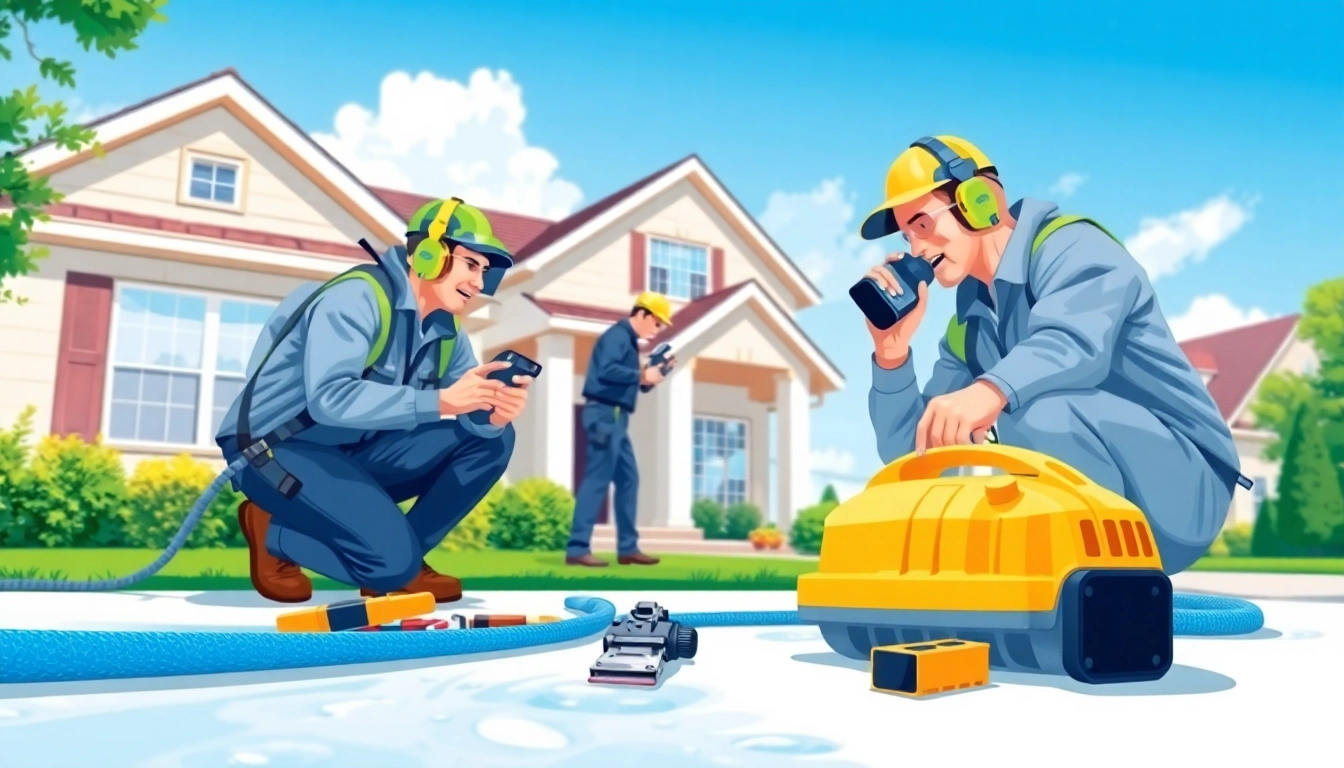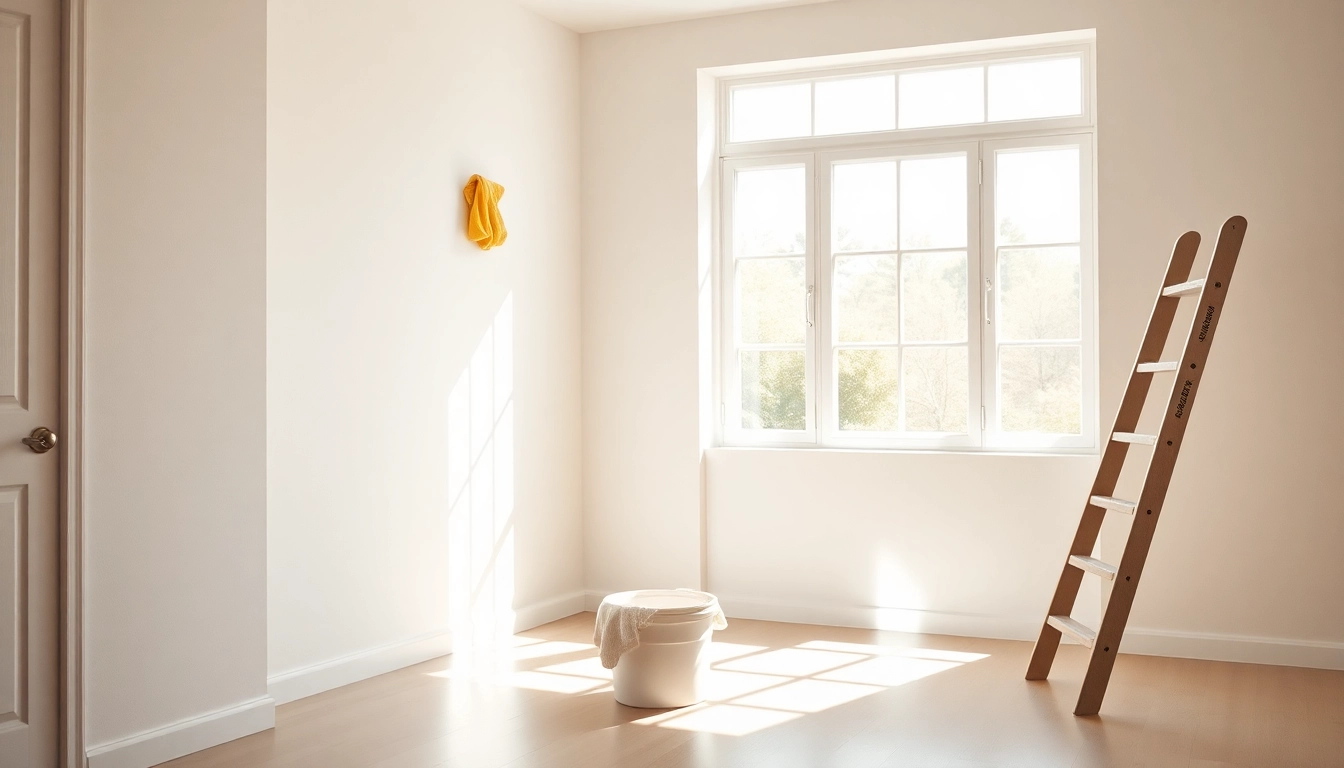Introduction to Leak Detection Company Methods
When it comes to maintaining your home or business, being proactive about potential water leaks can save you significant time, money, and stress. This is where a reliable leak detection company plays a crucial role. Understanding the methods and technologies used in leak detection allows homeowners to make informed decisions and protect their properties from the detrimental effects of leaks. In this article, we will delve deep into leak detection methodologies, the importance of early detection, the common signs indicating a leak, and how to choose the right service provider.
Understanding Water Leak Basics
Water leaks can occur anywhere in a property, from hidden pipes behind walls to visible fixtures. They can originate from damaged plumbing systems, appliances, or even weather-related damage. Understanding the basic types of leaks—such as slab leaks, pinhole leaks, and pipe bursts—enables property owners to address issues effectively. Slab leaks occur beneath the foundation of a building, while pinhole leaks are small but can lead to significant water loss over time.
Why Early Detection Matters
Early detection of leaks is paramount to preventing extensive damage. Ignoring even a minor leak can lead to mold growth, structural damage, and increased water bills. For example, a small leak can waste hundreds of gallons of water each year, contributing to rising utility costs. By detecting leaks early, property owners can not only avoid expensive repairs but also ensure the health and safety of their environment.
Common Tools Used by a Leak Detection Company
Leak detection companies utilize various tools and technologies to identify leaks accurately. Some of the most common tools include:
- Infrared Cameras: These devices detect temperature variations in walls and floors, indicating water presence.
- Acoustic Listening Devices: Used to detect sounds emitted from leaks, these devices are useful in locating hidden leaks within walls or underground.
- Moisture Meters: These measure moisture levels in building materials, helping to identify areas susceptible to leaks.
Signs You May Need a Leak Detection Company
Identifying Visible Water Damage
Visible signs of water damage are often the first indicators that a leak may be present. Stains on ceilings, walls, or floors, peeling paint, and warped flooring are common signs that should prompt a call to a leak detection company. These visible issues often correlate with underlying plumbing problems that need immediate attention.
High Utility Bills: The Hidden Indicator
One of the most effective ways to detect a leak is by reviewing your water bills. Unexplained increases can indicate that water is escaping from your system. Homeowners should monitor their water use and investigate any sudden spikes, as these can be the result of hidden leaks impacting their utility expenses.
Detecting Unusual Auditory Effects
Sometimes, leaks can be detected by listening closely. The sound of running water, dripping, or unusual noises coming from pipes can indicate a leak. If you notice persistent sounds, even when all appliances are turned off, it’s wise to consult a leak detection expert to investigate further.
Advanced Technologies in Leak Detection
Non-Invasive Techniques Explained
Non-invasive leak detection techniques allow professionals to identify leaks without causing damage to walls or floors. Methods such as thermal imaging and acoustic monitoring are key components of modern leak detection services. These techniques not only save time but also resources, reducing the need for invasive procedures that could complicate repairs.
Benefits of Thermal Imaging
Thermal imaging cameras can visualize heat differentials, making them exceptionally useful in detecting leaks hidden in walls or underground. This technology highlights the moisture seepage areas, allowing for precise localization without invasive inspection methods. The ability to see heat patterns can expedite the detection process dramatically.
Using Acoustic Devices for Precision
Acoustic leak detection relies on sensitive microphones to amplify sounds generated by leaking water. These devices are invaluable in locating hard-to-find leaks, particularly those that are not visible to the naked eye. Acoustic devices can differentiate between standard noise and sounds indicating a leak, making them a critical tool in any leak detection arsenal.
Choosing the Right Leak Detection Company
Qualities of a Reliable Service Provider
Selecting a trustworthy leak detection company is essential to ensure effective service without unnecessary costs. Look for companies with a solid reputation, verified credentials, and experienced technicians. A good company will offer a clear inspection process and provide you with all options available for repairs.
Customer Reviews and Testimonials
Analyzing customer reviews can provide insight into a company’s reliability and effectiveness. Positive testimonials often indicate a company’s commitment to quality and customer satisfaction. Additionally, online ratings from reputable sources can assist potential clients in their decision-making process.
Cost Factors Explained
The cost of leak detection services can vary based on factors such as the type of leak, the complexity of the detection process, and geographic location. Some companies charge flat rates, while others may bill hourly. Understanding these cost factors will help homeowners make an informed decision that aligns with their budget while ensuring quality work is maintained.
Next Steps After Leak Detection
Understanding Repair Processes
Once a leak has been identified, understanding the repair process is critical. Repairs can range from simple fixes, such as tightening a valve, to more complex solutions like replacing sections of plumbing. It’s essential to work closely with the leak detection company to understand the best approach for repairing the leak.
Preventive Measures to Consider
Preventive measures can significantly reduce the likelihood of future leaks. Regular plumbing inspections, installation of quality water appliances, and routine maintenance can prevent issues before they arise. Moreover, keeping an eye on the water usage and being attuned to the signs of leaks can create a proactive response to potential problems.
Maintaining Your Home’s Plumbing System
Proper maintenance of plumbing systems is essential for prolonging the life of your pipes and appliances. Homeowners should routinely flush their water systems, check for leaks, inspect hoses for wear, and employ water softeners to reduce pressure on pipes. Regular maintenance will help extend the life of plumbing systems and minimize repair needs in the future.


